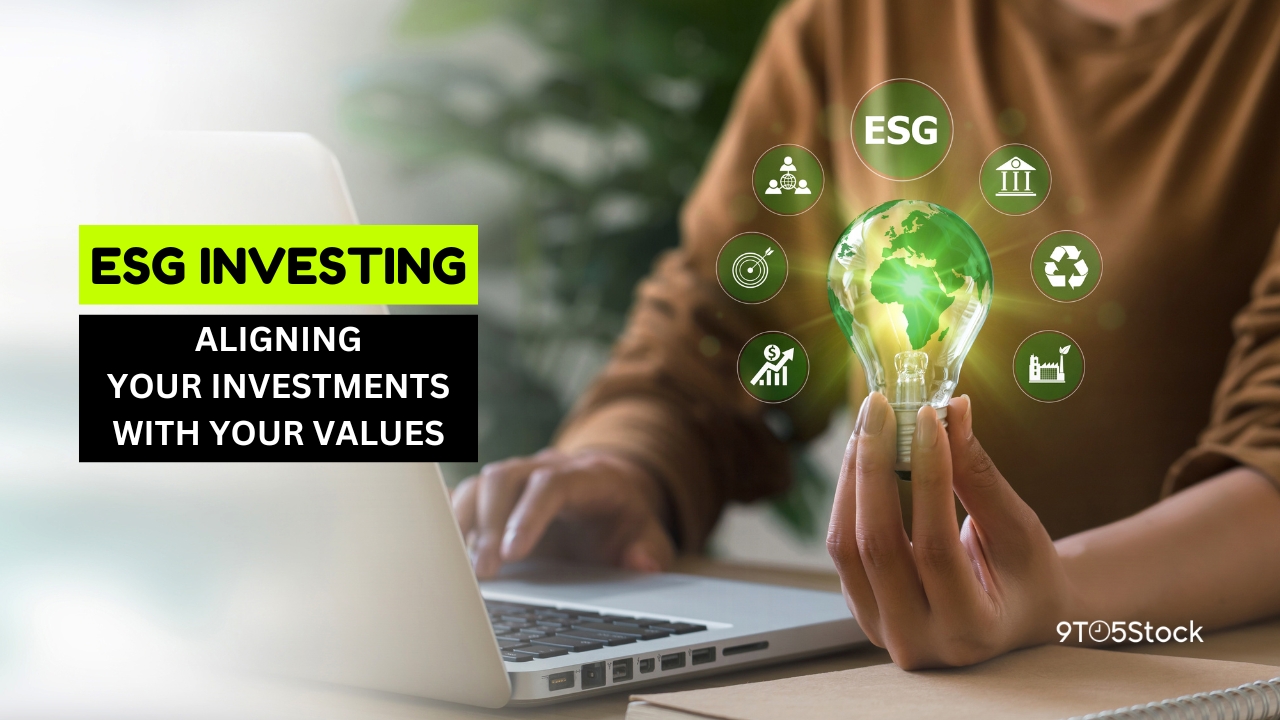ESG Investing: In recent years, ESG (Environmental, Social, and Governance) investing has gained significant traction among investors looking to align their financial goals with their personal values. This approach goes beyond traditional financial metrics, considering the impact of investments on society, the environment, and corporate governance practices. This article explores the principles, benefits, challenges, and strategies of ESG investing, empowering you to make informed decisions that resonate with your ethical convictions.
Introduction to ESG Investing

What is ESG Investing?
ESG investing entails integrating environmental, social, and governance factors into the investment decision-making process. It seeks to generate positive societal impact alongside financial returns.
Importance of ESG Investing
Investors increasingly recognize the profound influence companies have on the world. By supporting businesses that prioritize ESG criteria, investors can drive positive change.
Environmental Impact
Investing in companies committed to sustainability initiatives can contribute to mitigating climate change and reducing environmental footprint.
Social Responsibility
Companies focusing on social responsibility foster inclusive workplaces, support local communities, and uphold human rights.
Governance and Ethical Practices
Strong governance ensures transparency, ethical leadership, and accountability, safeguarding investor interests.
Key Principles of ESG Investing
Environmental Criteria
Climate Change Initiatives: Companies implementing renewable energy projects or reducing carbon emissions are prime examples.
Resource Efficiency: Investments in companies promoting efficient resource use and waste reduction align with environmental sustainability goals.
Social Criteria
Human Rights: Supporting companies that respect human rights across their operations and supply chains contributes to social justice.
Diversity and Inclusion: Investing in diverse leadership and inclusive workplaces enhances innovation and community engagement.
Governance Criteria
Transparency and Accountability: Companies with robust governance structures and transparent reporting practices build trust with investors.
Ethical Leadership: Ethical leadership promotes fair business practices and ethical decision-making, aligning with investor expectations.
Aslo Read: Investing Made Easy: Top Stock Market Apps for Beginners in 2024
Benefits of ESG Investing
Financial Performance: Research indicates that companies with strong ESG practices often outperform their peers over the long term.
Risk Mitigation: ESG factors can mitigate risks related to regulatory compliance, reputational damage, and operational inefficiencies.
Long-Term Sustainability: By investing in sustainable practices, ESG investors contribute to a more resilient economy and society.
How to Start ESG Investing
Assessing Your Values and Goals: Define your priorities and determine which ESG issues matter most to you.
Researching ESG Funds and Companies: Explore investment options that align with your values and financial objectives.
Consulting with Financial Advisors: Seek guidance from professionals experienced in ESG investing to tailor your investment strategy.
Challenges of ESG Investing
Lack of Standardization: The absence of uniform ESG metrics makes it challenging to compare and evaluate investment opportunities.
Performance Metrics and Reporting: Investors may face difficulties in assessing the actual impact of ESG investments due to varying reporting standards.
Case Studies of Successful ESG Investments
Company A: Environmental Innovation: Through sustainable practices and innovative technologies, Company A reduced its carbon footprint while enhancing operational efficiency.
Company B: Social Impact Initiatives: Company B’s commitment to community development and employee welfare exemplifies its dedication to social responsibility.
Current Trends in ESG Investing
Integration into Mainstream Investments: ESG considerations are increasingly integrated into mainstream investment strategies and financial products.
Regulatory Developments: Governments and regulatory bodies worldwide are adopting policies that encourage ESG disclosures and sustainable investment practices.
Also Read: A Beginner’s Guide to Investing in US Shares (2024)
Impact of ESG Investing on Corporate Behavior
Influence on Corporate Policies: Investor demand for ESG compliance encourages companies to adopt more responsible business practices.
Stakeholder Engagement: ESG-focused companies often enjoy stronger relationships with stakeholders, including employees, customers, and communities.
Future Outlook of ESG Investing
Growth Prospects: The ESG investing landscape is poised for growth as more investors prioritize sustainability and ethical considerations.
Evolving Strategies: Continuous innovation in ESG frameworks and investment strategies will shape the future of sustainable finance.
Must Read: Day Trading vs. Long-Term Investing: Which Is Right for You?
Conclusion
ESG investing empowers individuals to invest in companies that align with their values while promoting positive societal and environmental change. By integrating ESG criteria into investment decisions, you can contribute to a more sustainable future while potentially achieving competitive financial returns.
FAQs
What are ESG criteria?
ESG criteria refer to Environmental, Social, and Governance factors used by investors to evaluate corporate behavior and societal impact.
How does ESG investing impact financial performance?
Companies with strong ESG practices often demonstrate resilience and long-term financial performance due to reduced risks and enhanced operational efficiency.
Are there specific ESG funds available for individual investors?
Yes, many financial institutions offer ESG funds and investment products tailored to individual investors interested in sustainable finance.
What role do regulatory bodies play in ESG investing?
Regulatory bodies worldwide are increasingly mandating ESG disclosures, promoting transparency, and encouraging sustainable investment practices.
How can I assess the ESG performance of a company?
Look for companies that disclose detailed ESG reports, participate in sustainability initiatives, and demonstrate a commitment to ethical governance.
Hello guys! My name is David Wilson, and I'm a passionate stock market enthusiast and the founder of 9to5Stock. With a deep understanding of market dynamics and a commitment to empowering others, I share valuable insights, strategies, and updates to help investors like you make informed decisions and achieve financial success. Welcome to our community, and let's thrive together in the world of investing!
